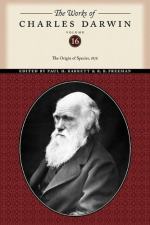Whether natural selection has really thus acted in nature, in modifying and adapting the various forms of life to their several conditions and stations, must be judged of by the general tenour and balance of evidence given in the following chapters. But we already see how it entails extinction; and how largely extinction has acted in the world’s history, geology plainly declares. Natural selection, also, leads to divergence of character; for more living beings can be supported on the same area the more they diverge in structure, habits, and constitution, of which we see proof by looking at the inhabitants of any small spot or at naturalised productions. Therefore during the modification of the descendants of any one species, and during the incessant struggle of all species to increase in numbers, the more diversified these descendants become, the better will be their chance of succeeding in the battle of life. Thus the small differences distinguishing varieties of the same species, will steadily tend to increase till they come to equal the greater differences between species of the same genus, or even of distinct genera.
We have seen that it is the common, the widely-diffused, and widely-ranging species, belonging to the larger genera, which vary most; and these will tend to transmit to their modified offspring that superiority which now makes them dominant in their own countries. Natural selection, as has just been remarked, leads to divergence of character and to much extinction of the less improved and intermediate forms of life. On these principles, I believe, the nature of the affinities of all organic beings may be explained. It is a truly wonderful fact—the wonder of which we are apt to overlook from familiarity—that all animals and all plants throughout all time and space should be related to each other in group subordinate to group, in the manner which we everywhere behold—namely,




